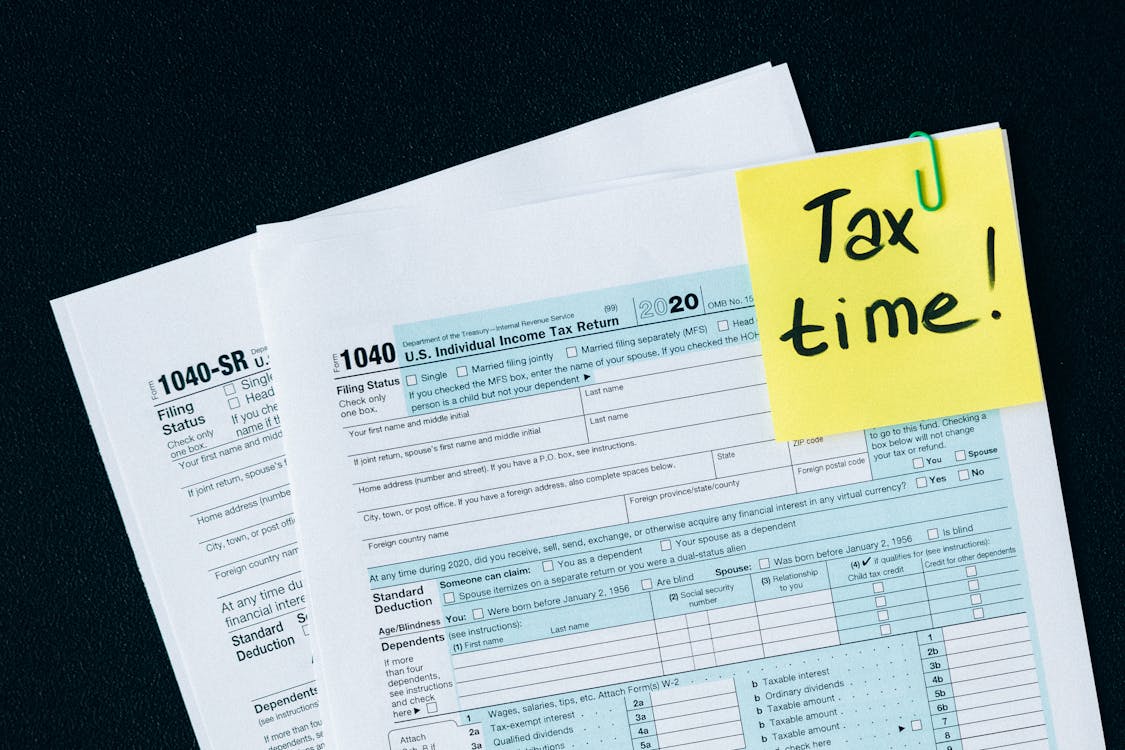Should Congress Pass A Law Forbidding States From Having No State Income Tax?
Author: ChatGPT
April 30, 2023
Introduction
💰💸💳
Proponents of having no state income tax argue that it is an important part of economic freedom. States that have no state income tax, such as Texas and Florida, have been able to attract businesses and individuals looking to keep more of their income. It also allows for more personal financial freedom, as individuals are able to keep more of what they earn and spend it as they wish.
On the other hand, opponents argue that having no state income tax puts other states at a disadvantage. Without state income tax revenue, states may struggle to fund necessary government programs, such as education and healthcare. This can result in higher property or sales taxes to make up for the lost revenue.
In addition, some argue that having no state income tax may actually hurt low-income individuals who rely on government assistance programs. With less revenue, states may not be able to adequately fund these programs, leaving those in need without necessary support.
Overall, while the idea of having no state income tax may seem appealing to some, there are certainly trade-offs to consider. It is important for states to carefully consider their options and weigh the potential benefits and drawbacks before enacting such legislation.
🤔💭💰
In states with no state income tax, individuals may have more discretionary income to invest or spend in other sectors of the economy. This can lead to increased economic growth and job creation, as businesses are attracted to the state and individuals have more funds to support local businesses.
However, the lack of state income tax revenue can also lead to a lack of public goods and services. This can lead to higher property and sales taxes, as these may be the only viable funding sources for essential government programs.
It is also worth noting that state income tax is often considered to be progressive, meaning that those who earn more pay a higher percentage of their income in taxes. Without state income tax, low-income individuals may lose out on potential government support.
In conclusion, the issue of whether or not states should have no state income tax is a complex one with no clear answer. It is important for both advocates and opponents to consider the potential benefits and drawbacks before making a decision.
Pros of Allowing States to Have No State Income Tax
🏭👨💼💰
However, opponents argue that states need revenue to fund important services such as education, healthcare, and infrastructure. Critics also point out that states without income tax often rely heavily on other forms of taxation, such as sales tax or property tax, which can disproportionately affect low-income individuals.
📚🏥🚧💸💔
It's important to note that not all states have the same tax structure or economic needs. For example, Alaska is able to afford no state income tax due to its vast oil reserves, while small states with limited natural resources may struggle without income tax revenue.
🏞️🛢️💸💻
Overall, the decision to have a state income tax is complex and requires consideration of the unique circumstances of each state. While there may be economic advantages to a state with no income tax, it's important to ensure that necessary services are still being funded and that the tax burden is not unfairly shifted to the most vulnerable members of society.
🤑💸 Tax policies and government spending are two closely related economic topics. When we talk about state income tax, it's important to think about how it impacts government spending. Opponents argue that having no state income tax can actually benefit the economy because it forces the government to find alternative ways to generate revenue for public programs.
💰🏫👩⚕️ A situation where there's no state income tax might result in governments making tough choices about where to allocate resources. For example, they may increase sales taxes or cut spending on services like education and healthcare. While it may seem harsh, such moves actually incentivize the government to use taxpayer money more efficiently and effectively. As a result, reducing government debt is possible, which is ultimately beneficial for taxpayers.
🏛️💰 Some people believe that having no state income tax can promote competition between states. This is because without this tax, states need to compete by offering better services or lower costs to attract more residents and companies. This competition can encourage the state to enhance its services and can lead to overall economic growth in the area.
Moreover, states with no income tax can attract retirees and individuals with high net worth. These states can help these groups keep more of their money, which can help stimulate the real estate, investment, and small business sectors.
However, it's essential to keep in mind that states with no income tax must find other ways to generate revenue. Some states with no state income tax rely heavily on sales tax or property tax to compensate. As a result, residents in these states with low incomes may end up paying more to cover up for the lack of income tax.
Nevertheless, the option to create a state income tax-free environment provides an extra degree of flexibility for state legislatures to implement policies that foster economic activity that can be challenging to achieve in states with a more rigid tax structure. 🤑💡

Cons of Allowing States to Have No State Income Tax
👋 Hey there! It's important to understand the pros and cons of state income taxes. While it may seem appealing to live in a state without one, it's important to consider the potential drawbacks.
One major argument against states with no income tax is that they may be at a disadvantage compared to neighboring states that do have income tax. Without income tax revenue, these states must rely on other sources, such as sales tax or federal funding, which can put a burden on the citizens in the form of higher taxes or reduced services.
However, there are also some benefits to living in a state without an income tax. For example, individuals in these states may have more disposable income, which can stimulate economic growth. Additionally, businesses may be attracted to these states due to lower taxes, which can create job opportunities and further economic development.
It's important to weigh the pros and cons before deciding whether or not to support a state income tax. Ultimately, the decision should be based on what is best for the state and its citizens. 🤔💰
👋🏼 Hey finance enthusiasts! Let's talk about state income tax and its effect on inequality within the country 🇺🇸
Recently, there has been a debate on whether states should have the option to not have a state income tax. While this may sound good for many people who would like to pay less taxes, some argue that it could lead to a rise in inequality between different regions within the country.
The main reasoning behind this argument is that wealthier individuals would be able to easily move to other regions without having their incomes taxed. On the other hand, poorer individuals may not have the means to move away from their current location, and would therefore be stuck paying higher taxes. This could create a stark contrast between richer and poorer regions of the country, causing higher levels of inequality.
While there are certainly benefits to not having a state income tax, it's important to consider the potential unintended consequences that could arise. We must find a balance that works for everyone in order to maintain an equitable society 🤝
🔍 Let's dive deeper into the issue of state income taxes and their impact on federal programs.
While it's true that states with no state income taxes may not contribute revenue towards federal programs such as Social Security or Medicare, it's important to note that these states still pay federal taxes which go towards funding these programs. Additionally, federal programs are funded through a variety of sources, not just state income taxes, so the impact of states with no income taxes is likely minimal.
On the other hand, there are potential benefits to not having a state income tax, such as attracting businesses and individuals to relocate to the state. This can lead to an increase in economic activity and job creation.
It's also worth considering that states with no income tax often rely on other types of taxes, such as sales and property taxes, to fund state and local government programs. These taxes can be regressive, meaning they disproportionately impact lower-income individuals.
Overall, the issue of state income taxes and their impact on federal programs is complex and multifaceted. While there are arguments on both sides, it's important for policymakers to carefully weigh the potential benefits and drawbacks before making any decisions.

My Opinion on Whether Congress Should Pass a Law Forbidding States from Having No State Income Tax
🤔After looking into both sides of the argument, I think Congress should not pass a law that restricts states from having no state income tax because this could limit economic freedom and create an unequal playing field. However, Congress should consider passing legislation that encourages all states to contribute towards important federal programs such as Social Security and Medicare, regardless of whether they have an individual income tax or not. This will ensure that all taxpayers across the country are contributing equally towards these crucial programs.
📚If you're interested in learning more about finance and investing, check out these articles for valuable insights and a more comprehensive understanding of the subject matter. You can read about bond ladders and income annuities at www.cscourses.dev/simple-is-beautiful-bond-ladders-and-income-annuities.html, how stock losses can offset dividend income at www.cscourses.dev/can-stock-losses-offset-dividend-income.html, and the advantages and disadvantages of automated trading systems at www.cscourses.dev/the-advantages-and-disadvantages-of-automated-trading-systems.html. Happy reading!💻📚


How Long Does It Take To Sell Stock And Get Money?
Discover the answer to one of the most frequently asked questions in the world of finance - learn how long it takes to sell stock and receive your earnings.

What Are High Dividend Stocks?
Discover how investing in high dividend stocks can potentially provide a steady income stream and increase your long-term returns in the stock market.

Are Data Science And Machine Learning The Same?
Data science is a field of study that focuses on extracting insights from large amounts of data. It involves using various techniques such as machine learning, natural language processing, statistics, and data mining to analyze data sets and uncover patterns or trends.

Are Remarkable Tablets Worth It?
Are you looking for a device that can replace your notebooks and printed documents? If so, you may have heard of the reMarkable 2 tablet.
